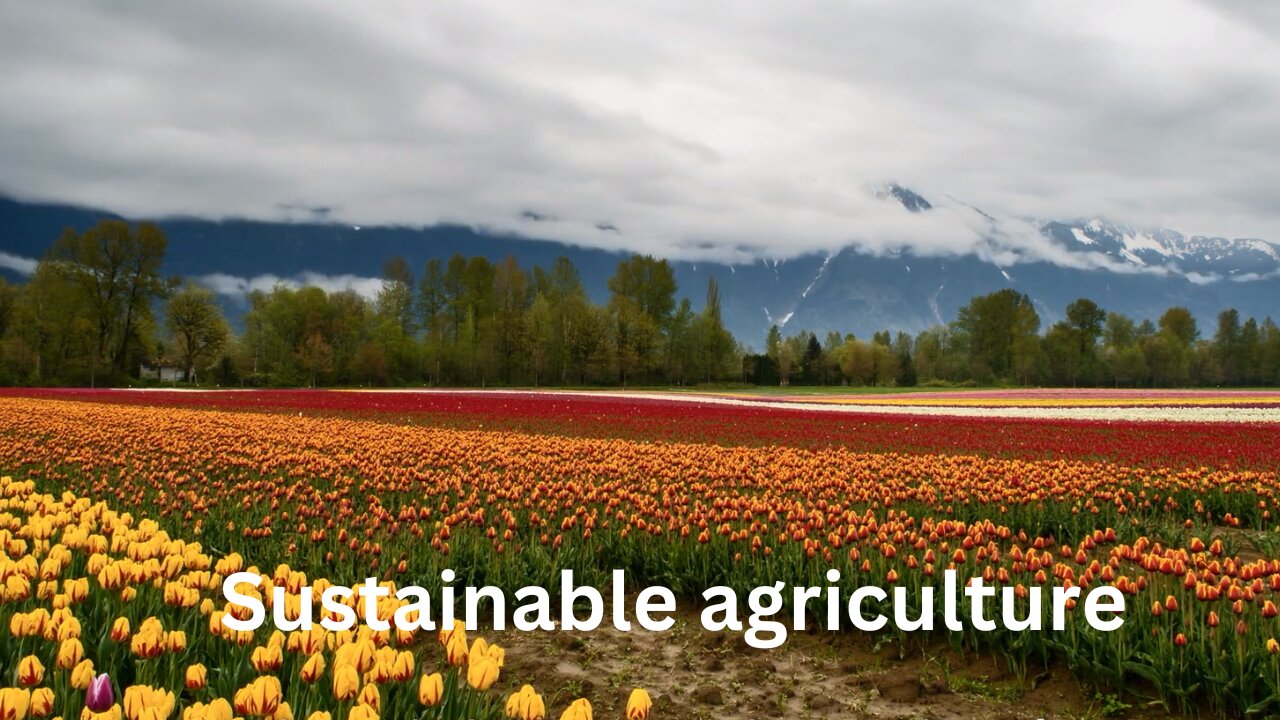Premium Only Content

What is Sustainable Agriculture?
Sustainable agriculture, also known as sustainable farming, is a system of farming that aims to provide the necessary resources for current human populations while conserving the planet's ability to sustain future generations. This approach recognizes the interconnectedness of organisms and the environment and seeks to strike a balance between meeting immediate needs and ensuring long-term viability.
Here are some key points about sustainable agriculture:
1. Diverse Crops: Sustainable agriculture emphasizes planting diverse crops, including heirloom plants suited to a region's specific climate. Unlike industrial monoculture (relying on a single crop), sustainable practices encourage polyculture, where multiple crops are grown together. Although polyculture can be more labor-intensive, it reduces the need for chemical pesticides and fertilizers while improving soil quality.
2. Crop Rotation: Crop rotation is another sustainable practice. By rotating crops, farmers preserve soil productivity and reduce the reliance on agricultural chemicals for fertilization and pest control.
3. Biodiversity Protection: Given the role of modern agriculture in contributing to mass plant and animal species extinction, sustainable agriculture actively protects and supports biodiversity. This approach recognizes that planetary health directly impacts human well-being.
4. Economic Equity and Ecosystem Health: Sustainable agriculture prioritizes three fundamental tenets:
Promoting socioeconomic equity
Earning profit
Maintaining ecosystem health
In summary, sustainable agriculture strives to create a harmonious balance between human needs, environmental conservation, and the health of our planet. It stands alongside other approaches like organic farming, regenerative agriculture, permaculture, and agroforestry.
-
 1:00:54
1:00:54
The Tom Renz Show
7 hours agoMore Epstein/FBI, a Scary Trade War, & the Dem Echo Chamber
7.49K1 -
 40:43
40:43
Kimberly Guilfoyle
8 hours agoDems Double Down on Delusion-Why? Live with Tony Kinnett & Bo French | Ep.202
77.8K34 -
 1:28:42
1:28:42
Redacted News
6 hours agoBREAKING! SOMETHING BIG IS HAPPENING IN EUROPE ALL OUT WAR IS COMING AGAINST RUSSIA, TRUMP FURIOUS
121K285 -
 47:50
47:50
Candace Show Podcast
6 hours agoBREAKING: Judge Makes Statement Regarding Taylor Swift's Text Messages. | Candace Ep 155
113K113 -
 1:14:23
1:14:23
Josh Pate's College Football Show
3 hours ago $0.29 earnedCFB’s Most Hated Teams | FSU & Clemson Future | Big Ten Win Totals | Star Rankings Overrated?
14.5K -
 1:33:47
1:33:47
CatfishedOnline
5 hours agoGoing Live With Robert - Weekly Recap
27.8K -
 55:18
55:18
LFA TV
1 day agoEurope’s Sudden Turn Against America | TRUMPET DAILY 3.6.25 7PM
32.2K3 -
 4:21
4:21
Tundra Tactical
4 hours ago $2.12 earnedPam Bondi MUST Enforce Due Process NOW!
23.7K1 -
 56:42
56:42
VSiNLive
5 hours agoFollow the Money with Mitch Moss & Pauly Howard | Hour 1
48K1 -
 1:05:32
1:05:32
In The Litter Box w/ Jewels & Catturd
1 day agoShalom Hamas | In the Litter Box w/ Jewels & Catturd – Ep. 756 – 3/6/2025
103K37